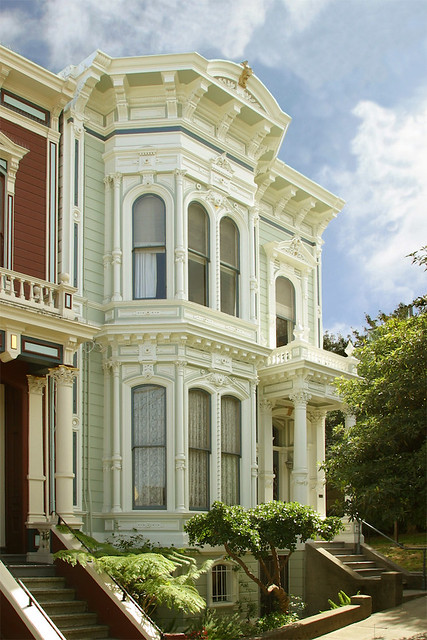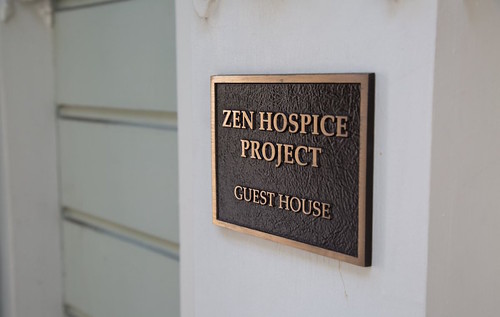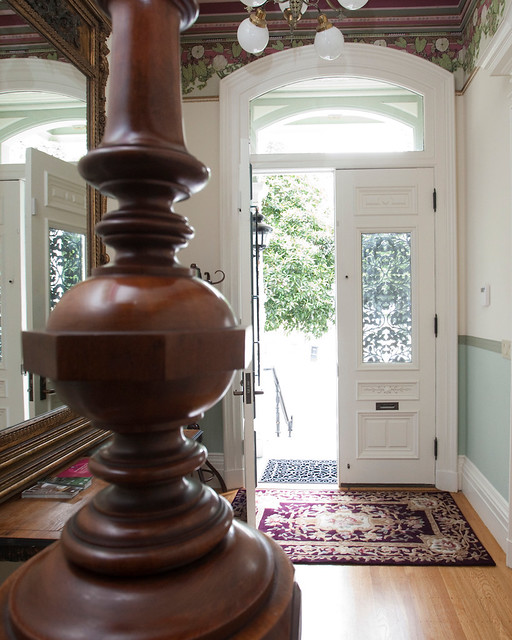FEATURES|THEMES|Social Engagement
“Welcome Everything, Push Away Nothing:” Being with the Dying at Zen Hospice Project
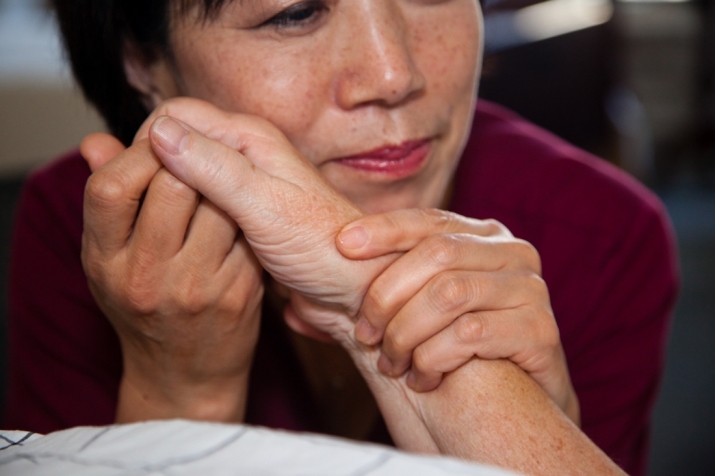 Image courtesy of Zen Hospice Project
Image courtesy of Zen Hospice ProjectIn their final days of life, some people are sad, some are angry, some are peaceful, some are fearful, some are gracious, some are sour, some are indifferent, some are full of love, some are lost in physical suffering, some are ready to go, some seem gone already. A few are luminous, and many move through all of the above.
As a volunteer caregiver at Zen Hospice Project (ZHP) in San Francisco, California, I sit with people nearing the end of life. I witness the many ways they and their families experience dying. I also witness my own internal reactions, present with their dying processes and watching my thoughts, emotions, sensations, and impulses rise and fall, stretching my heart to be with it all. Welcoming everything that arises around death and dying, both inside and outside of me, is one of the most powerful practices I know.
The Zen Hospice Project’s Guest House is a beautiful and serene residence for people with terminal illnesses. Founded on Buddhist principles, our caregiving model focuses on mindful and compassionate acceptance of the realities of dying. Instead of treating dying like a problem to fix, ZHP’s volunteers and 24-hour nursing staff tenderly attend to all that arises for people facing the end of life and their families. We balance providing high-quality comfort care, and alleviating suffering when possible, with compassionately being with what is.
I won’t say that we “fearlessly” face death at Zen Hospice Project. Rather, we deliberately turn toward death and embrace the fear that arises, as well as the many other emotions and behaviors that death and dying elicit. We cultivate awareness of our own experiences of fear, suffering, and loss. This allows us to more clearly see when appropriate, open-hearted action is truly needed and avoid reacting out of personal agendas of anxiety and aversion. In making room for our own suffering, we generate the compassionate spaciousness and solidity needed to not flee in the face of the suffering of others. This is echoed in two of the five precepts that guide caregiver service at Zen Hospice Project: “welcome everything, push away nothing,” and “bring your whole self.”
To welcome everything and push away nothing helps us as caregivers to be a loving and steady presence for whatever is happening around us in the moment. This precept merges with “bring your whole self,” allowing everything outside of ourselves to be as it is, as well as everything inside ourselves—our current reality, our past, our hurts, our wisdom, our full experience, all of it, just as it is, pushing none of it away.
Like all human beings, I have had plenty of suffering in my life. Sometimes it feels as if I’ve had more than my fair share. Rather than trying to run from my suffering, or bury or deny it, I have instead learned to turn toward my pain with kindly attention, to embrace it the way I would a hurt child. Cultivating this care and attention, I have become intimate with my own suffering, and by extension, this intimacy allows me to draw on my strengths and my wounds to be present for the full range of human experience in myself and others, the pain and the beauty. My grief for all that I have loved and lost nourishes and expands my capacity for compassion and empathy, and broadens my ability to be with others as they experience pain, loss, and grief. I welcome my whole self to my caregiving.
Recently, a woman I’ll call “Estelle” came to the Guest House to live her final days. An elegant woman in her early 70s, Estelle had lived a full life of active service fostering positive change all around the world. Her devoted husband of several decades, “Alan,” was at her side. He was clearly tense in the aftermath of many months of fiercely advocating for his wife’s well-being in various treatment and hospital settings. His love and rising panic at her decline were palpable on their arrival at the Guest House. A self-described “junkyard dog,” Alan was instinctively prepared for battle. At first finding fault with everything and everyone, Alan gradually softened as we allowed space for them to settle in and we compassionately accepted, rather than resisted, the pain and fear they were experiencing.
I didn’t get to spend much time with Estelle, but I sat with Alan during a particularly stressful moment when there was nothing more to be done for Estelle. Rather than reactively reject his demands and dissatisfactions, I reflected to him appreciation for his fierce and steadfast advocacy for Estelle. I asked him about her life and how they met. I noted my internal impulse to push away his very challenging anger and fear, and then drew on my own experience of profound anguish at my helplessness over a loved one’s survival in order to be with his. His tension began to melt as I met his anger, helplessness, pain, fear, and love with care and openness. Alan began to unclench.
Day by day, he relaxed a little more, even as Estelle grew weaker and closer to death. After she died, Alan wept at her bedside for a long time, later remarking that it was the first time he’d been able to cry since Estelle’s illness had begun. He opened even further, sharing his beautiful vulnerability, strength, and deep love for his wife with all of us during the Flower Petal Ritual—a simple yet poignant act when family, friends, and Guest House caregivers speak words of love for and place flower petals on the deceased in the garden as they are wheeled slowly to a waiting hearse. Alan’s open grief, love, and gratitude shone from his words and his very being as he spoke, his anger and criticisms dissolved. He allowed us to be with him and hold him in his grief, welcoming us, no longer pushing us away.
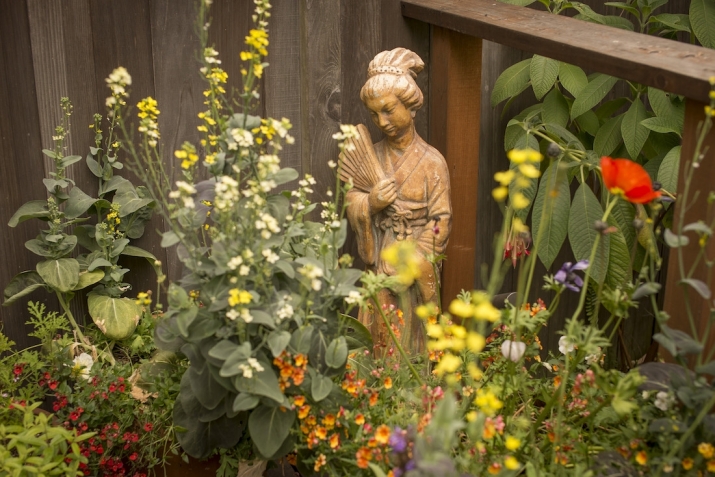 The Zen Hospice Project Guest House. Image courtesy of Zen Hospice Project
The Zen Hospice Project Guest House. Image courtesy of Zen Hospice ProjectBy welcoming everything and pushing away nothing inside and outside of ourselves, especially discomfort, we were able to create space for Estelle and Alan to find some peace and acceptance in her dying. Truly, we do more than compassionately witness and welcome; we are human, too, with our own loves and losses, and participate by bringing our whole selves. Life and death are shared experiences; at the Zen Hospice Project’s Guest House we are all participating, human to human, welcoming the full experience of life and death, whatever it may be.
See more

